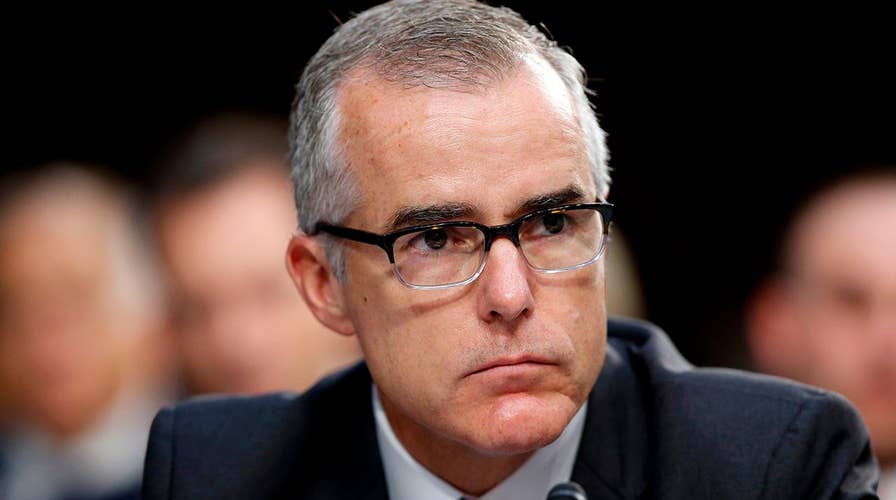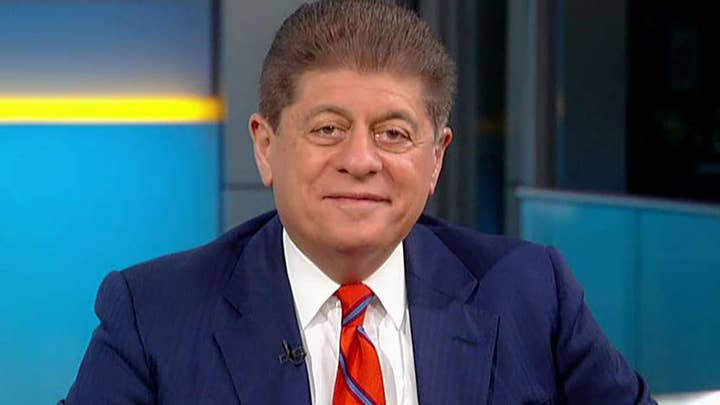McCabe says Mueller report validates choices FBI made on Russia probe
Former Deputy Director of the FBI Andrew McCabe praises the Mueller report after its public release. Fox News contributor Dan Bongino explains why he's wrong.
Former Deputy FBI Director Andrew McCabe pushed back Thursday on the idea that people should interpret Special Counsel Robert Mueller's press conference as something that primarily declared no collusion or obstruction on the president's part.
"What' has been billed as 'no collusion, no obstruction' should probably be recast as 'no witch hunt' and 'no exoneration,'" he said while appearing on "Morning Joe."
While McCabe refused to declare a conspiracy between Russia and the campaign, he indicated that Mueller's findings showed "inappropriate contacts" taking place between the two.
"We know now from the report, something over 140 contacts between individuals associated with the campaign contacting and having interactions with Russians or people connected to the intelligence services," he said. "This is unprecedented activity."
MICHAEL GOODWIN: AMERICA LEFT TO FACE THE NASTY CONSEQUENCES OF ROBERT MUELLER'S ACTIONS
During his press conference on Wednesday, Mueller reiterated the findings from his earlier report -- namely, that he couldn't prosecute the president because of DOJ policy and that he didn't have sufficient evidence to accuse the campaign of conspiring with Russia.
Some Democrats, on Thursday, responded by calling for impeachment proceedings while Trump's 2020 campaign manager said Trump was "completely exonerated."
McCabe also told MSNBC that he thought Mueller was "probably the last person on earth that wants to engage in a tit-for-tat counterpoint with the attorney general."
CLICK HERE TO GET THE FOX NEWS APP
"The attorney general for this function was his boss and as we all know is a personal friend of his. However director Mueller would not have come out and made the statement he made yesterday, would not have written the letter he sent to attorney general Barr after completing the report if he wasn't concerned about the way the results of his team had been misrepresented by the attorney general's original comments," he said.
"So I think this was Bob Mueller's way of very clearly underlining what he thought the most important aspects of their work were," he added.














































